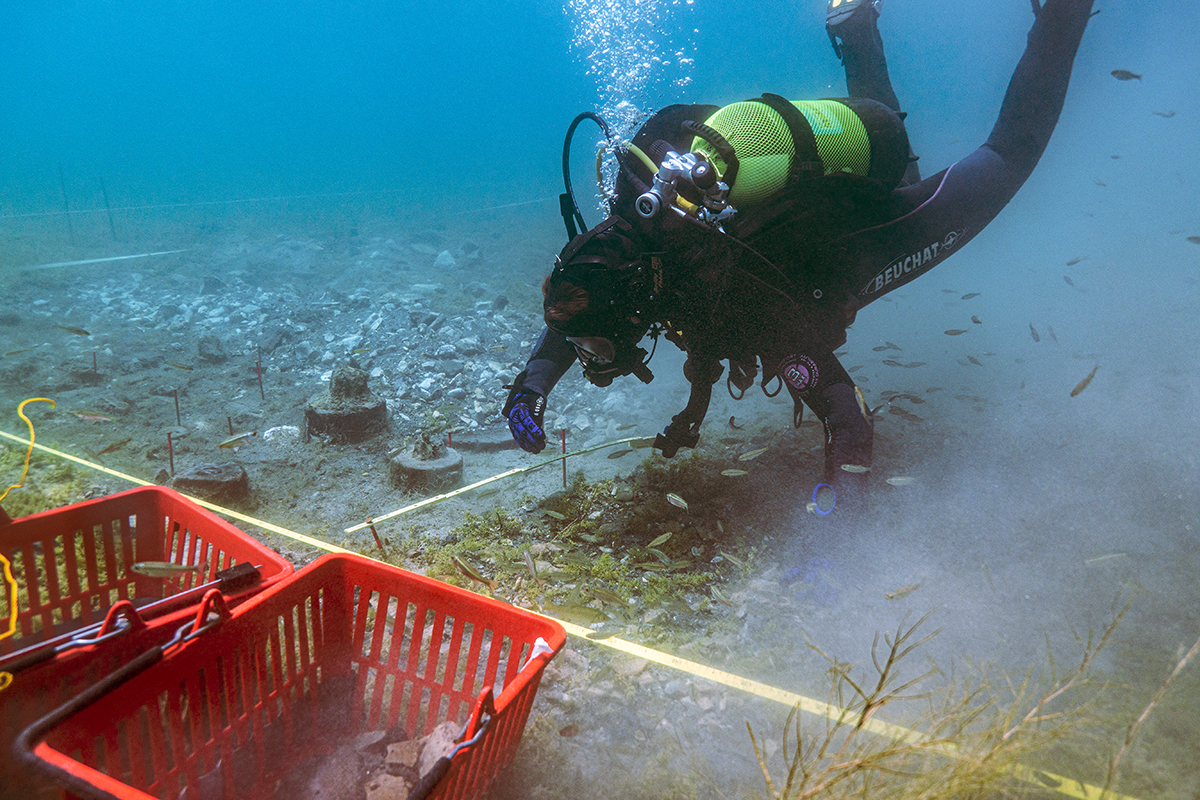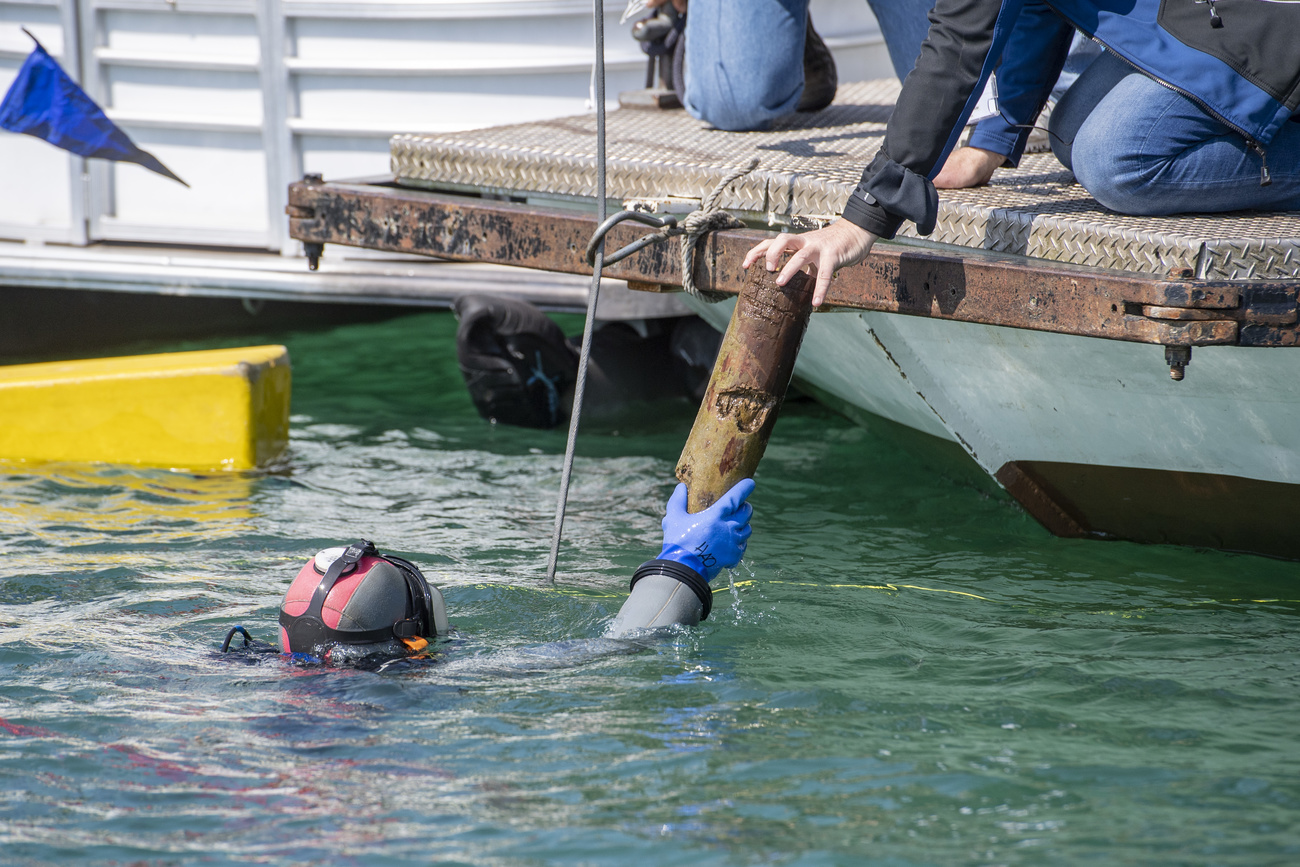
Neolithic pile dwelling dates back 8,000 years

Swiss researchers have dated the remains of a Neolithic pile dwelling in the Balkans, finding the settlement to be thousands of years older than originally thought.
The stilted settlement on the banks of Lake Ohrid, situated between North Macedonia and Albania, was inhabited between the middle of the 5th Millennium BC until the Bronze Age (2nd Millennium BC).
Using radiocarbon dating techniques to analyse 800 wooden piles, the University of Bern was able to dismiss previous assumptions that the dwelling dated back to 1,000 BC.
The readings were made possible because the wood was deprived of oxygen underwater and therefore protected from fungi or bacterial erosion. Such levels of preservation have only previously been found in Alpine regions.
Analysis of the lake floor around the wooden pile foundations also found remains of cultivated crops.
“The early findings are particularly interesting as the area played a key role in the proliferation of agriculture: Europe’s first farmers lived here,” said a university press releaseExternal link. “Early cattle breeders and arable farmers from Anatolia first reached the Aegean region, especially northern Greece, and then Central Europe via southern Italy and the Balkans more than 8,000 years ago.”
Researchers, who conducted their work as part of the European Research Council’s “Exploring the dynamics and causes of prehistoric land use change in the cradle of European farming” EXPLO programme, now hope that the site will be awarded cultural protection status.

More
Bronze Age village found under Swiss lake

In compliance with the JTI standards
More: SWI swissinfo.ch certified by the Journalism Trust Initiative


























You can find an overview of ongoing debates with our journalists here . Please join us!
If you want to start a conversation about a topic raised in this article or want to report factual errors, email us at english@swissinfo.ch.